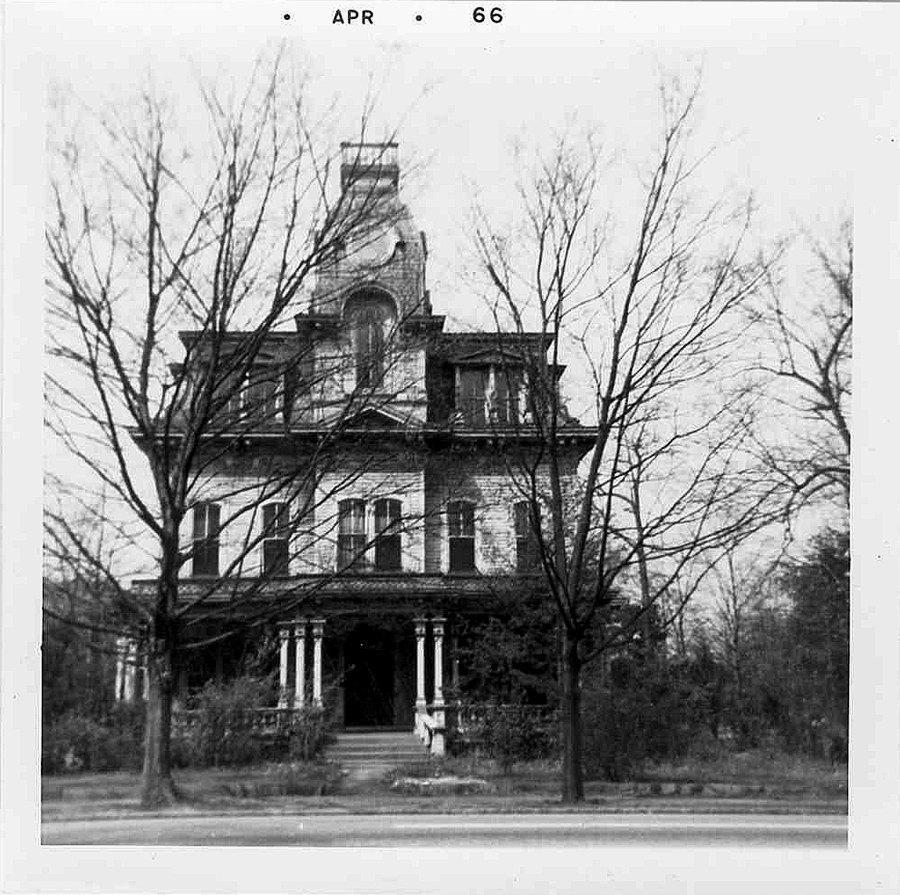Tweet @operathink and #operaweek, and JOIN this blog to share the news!
 |
| A portrait of the enigmatic Lizzie, by Tiago Finato |
Our first contributing artist is stage director Sarah Meyers, a staff director at the Metropolitan Opera in New York since 2006, who is also finishing a doctorate at Columbia. Here she tells a great story about our dear old Lizzie.
--
Sea Fog and Shadow Sister
A meditation on space in Lizzie Borden
by Sarah Meyers
Lizzie Borden is an exploration of evil, but that evil is not Lizzie’s alone. Rather the opera explores the corrosive, oppressive, persistent evil of the Borden household, of a family turned inside out by repression, secrets, and betrayal. Darkness permeates their world, and oozes into life through cruelty after petty cruelty.
Much like a Shakespearean play, the opera transfers the psychological agitation and turmoil onto the environment. The spirit of dead mother Evangeline hangs on to the house – first literally, in the portrait upon the wall, then figuratively, as Lizzie becomes a double of her mother. The house watches, shadows pursue, the fog rolls in malevolent and heavy from the sea. The garden is rife with pests and bugs.
Hatred and resentment have made the space itself sick, and sickening. The walls – Lizzie repeats, over and over again – the walls. It reminds me of a gothic fiction story I read many years ago, The Yellow Wallpaper, in which the winding patterns of vines in a woman’s bedroom drive her mad. But is it her insanity that in fact transforms the space, or does the room really have its own dark intentions? That story, like Lizzie Borden, suggests the possibility that both are true. As madness develops, yes, it transforms the space around us. But perhaps more frightening is the idea that space itself can become sinister, and that the inanimate – charged perhaps by our own hatred and fear – can come to life with its own dark purpose. The haunted house.
I’m currently at work on a dissertation at Columbia about exactly this type of space in contemporary performance – spaces which defy logic, which articulate a very specific form of anxiety. I’ve been studying how theatrical performance can get under our skin and inhabit our subconscious. So naturally, I would love to direct Lizzie Borden. It would be an ideal opportunity to explore the terrifying potential of theatrical space. Without doing a full design process, it is of course hard to say what that would entail, but I know what the key elements would be.
The house would have to be dangerous. Edges like blades, dark corners, angles. The fog – perhaps we could find a way to control its movement to make it interactive. I’d love for it to literally lick at Lizzie when she stands by the window. And perhaps most important, the use of light and dark. The shadows of the opera intrigue me – I’d love to literally bring those shadows to life, to give them increasing autonomy as Lizzie hurtles towards her murderous acts. In the end, only the shadows keep her company…
The house would have to be dangerous. Edges like blades, dark corners, angles. The fog – perhaps we could find a way to control its movement to make it interactive. I’d love for it to literally lick at Lizzie when she stands by the window. And perhaps most important, the use of light and dark. The shadows of the opera intrigue me – I’d love to literally bring those shadows to life, to give them increasing autonomy as Lizzie hurtles towards her murderous acts. In the end, only the shadows keep her company…
Learn more about Sarah Meyers's work at www.sarahinameyers.com







